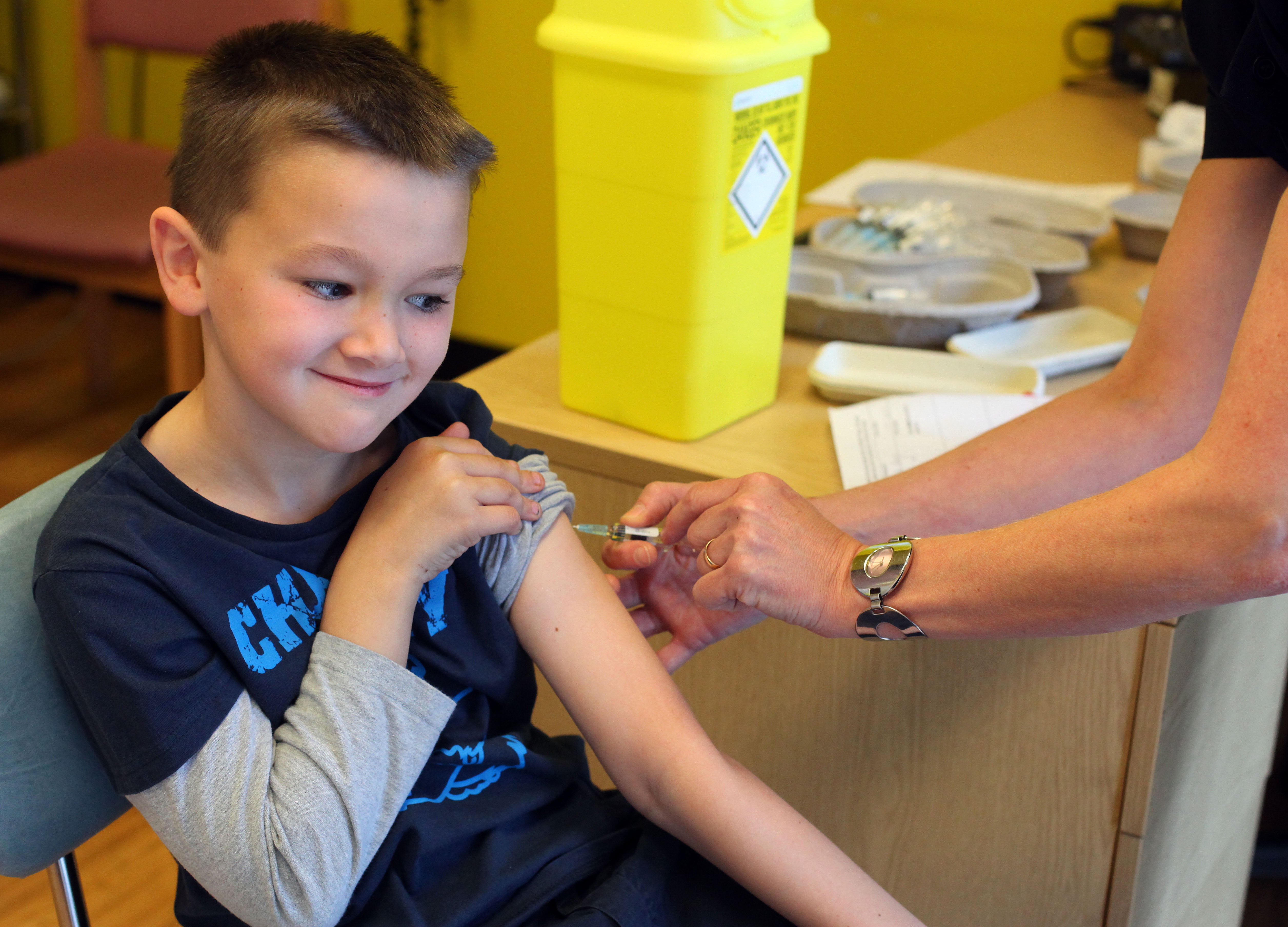Measles warning as MMR jab uptake falls to lowest level in 10 years
More than one in 10 children in England starting school at risk of catching deadly disease, experts say

Your support helps us to tell the story
From reproductive rights to climate change to Big Tech, The Independent is on the ground when the story is developing. Whether it's investigating the financials of Elon Musk's pro-Trump PAC or producing our latest documentary, 'The A Word', which shines a light on the American women fighting for reproductive rights, we know how important it is to parse out the facts from the messaging.
At such a critical moment in US history, we need reporters on the ground. Your donation allows us to keep sending journalists to speak to both sides of the story.
The Independent is trusted by Americans across the entire political spectrum. And unlike many other quality news outlets, we choose not to lock Americans out of our reporting and analysis with paywalls. We believe quality journalism should be available to everyone, paid for by those who can afford it.
Your support makes all the difference.More than one in 10 children in England are starting school at risk of catching deadly measles as vaccine rates have dropped to their lowest level in a decade, experts have warned.
The UK Health Security Agency (UKHSA) is urging parents to ensure their children have had their measles, mumps and rubella (MMR) vaccines as well as other routine jabs before starting school.
Measles is a highly infectious disease which can lead to serious complications such as pneumonia and brain inflammation known as encephalitis.
In addition, measles infection damages and suppresses the whole immune system, meaning children can be left much more susceptible to catching other infections.
In rare cases, measles can lead to a condition called subacute sclerosing panencephalitis ( SSPE), which can cause progressive destruction of the central nervous system, loss of motor control, epilepsy and death.
All children are invited for their first MMR vaccine on the NHS at the age of one, with the second dose given when they are three years and four months.
The most recent vaccine figures, covering July to September last year, show just 88.6 per cent of children have had their first MMR dose by the age of two while just 85.5 per cent have had both doses aged five.
This means more than one in 10 children aged five are not up to date with their two doses of MMR vaccine.
The World Health Organisation (WHO) says 95 per cent of children need to be vaccinated to keep measles away.
Launching a new campaign, the UKHSA and the NHS are now calling on parents and guardians to get their children vaccinated against the preventable diseases.
According to the UKHSA, there has been a significant drop since the start of the Covid pandemic in the number of children getting vaccinated against MMR and other diseases at the right time.
As international travel resumes, the UKHSA said it is more likely that measles will be brought in from countries that have higher levels of the disease and so it is important that MMR vaccination rates increase in the UK.
Since the introduction of the measles vaccine in 1968, it is estimated that 20 million measles cases and 4,500 deaths have been prevented in the UK.
Dr Vanessa Saliba, consultant epidemiologist at the UKHSA, said: “The MMR vaccine offers the best protection from measles, mumps and rubella which is why we’re calling on parents and carers to make sure their children are up to date with their two doses.
“Even a small drop in vaccine coverage can have a big impact on population immunity levels and lead to outbreaks.
“I would urge parents to check if their children are up to date with their MMR vaccines and if not to get them booked in as soon as they are able. It’s never too late to catch-up.”
Dr Nikki Kanani, GP and medical director for primary care at NHS England, said: “It is incredibly important that all parents and guardians ensure their child is up to date with their routine vaccinations, including MMR, as these vaccines give children crucial protection against serious and potentially deadly illnesses and stop outbreaks in the community.
“If your child has missed a vaccination, please contact your GP practice to book an appointment as soon as you can to make sure they have maximum protection against disease.”
Parents who are unsure if their child is up to date with all their routine vaccinations, should check their child’s Red Book (personal child health record) in the first instance.
GP practices are also able to carry out checks and book vaccine appointments.
As part of the campaign, research commissioned by the Department of Health and Social Care and the UKHSA of 2,000 parents and guardians of children aged five and under found 48 per cent were unaware measles can lead to serious complications such as pneumonia and brain inflammation.
Only four in 10 (38 per cent) were aware measles can be fatal and 56 per cent were unaware two doses of the MMR vaccine gives 99 per cent protection against measles and rubella.
Additional reporting by Press Association



Join our commenting forum
Join thought-provoking conversations, follow other Independent readers and see their replies
Comments